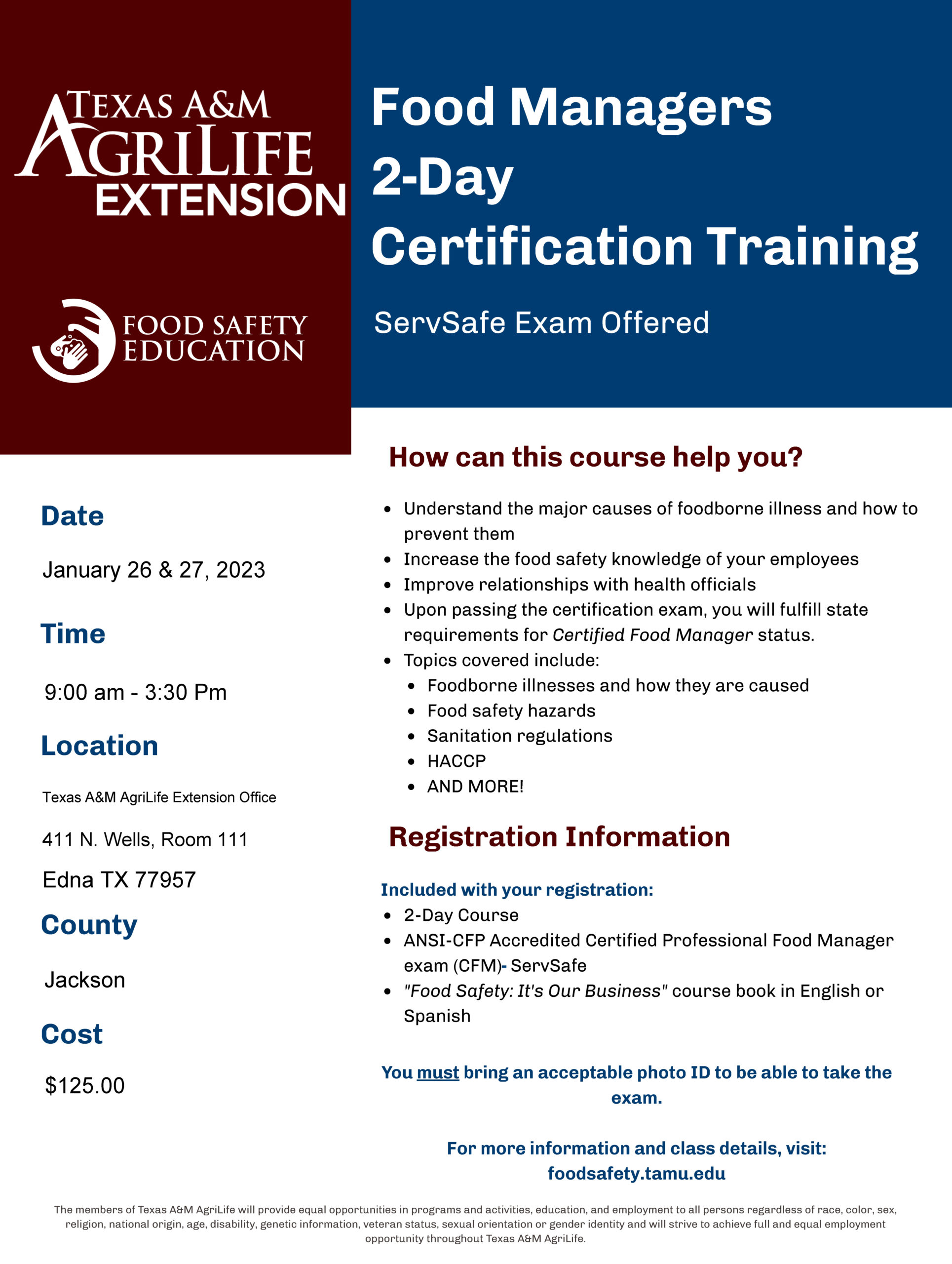Exactly How to Get Your Food Manager Certification Promptly
Obtaining your Food Supervisor Certification effectively calls for a methodical strategy, starting with a detailed understanding of the particular needs in your area. Choosing an accredited training program that lines up with your schedule is vital, as is utilizing suitable research materials to adequately get ready for the assessment. After finishing your training, timely organizing of the exam can avoid unneeded hold-ups. Many individuals neglect vital elements that can additionally quicken this procedure, which might significantly impact their certification journey. Exploring these nuances can eventually improve your path to certification.
Research Certification Needs

Ambitious food managers must initially identify which accreditations are identified and requisite in their jurisdiction. This typically requires evaluating regional laws and regulations that dictate food security methods and the certifications required for managerial positions. Understanding the eligibility requirements, such as prior experience in food solution or associated areas, is essential.

Pick an Efficient Educating Program
Choosing the right training program is an essential step after recognizing the accreditation requirements in your location. The efficiency of your training can considerably affect your understanding of food safety concepts, which are vital for passing the certification examination. Begin by researching programs approved by credible organizations, such as the American National Specification Institute (ANSI), as these generally stick to industry requirements.
Consider the training style that ideal fits your understanding style. Choices consist of in-person classes, on the internet training courses, or a hybrid method. On-line courses provide adaptability, permitting you to examine at your very own pace, while in-person sessions supply prompt interaction with peers and trainers. Review the curriculum to guarantee it covers crucial subjects such as foodborne diseases, hygiene, and risk-free food handling practices.
Confirm that the program consists of detailed materials and sources to aid in your learning. By meticulously choosing a training program that aligns with your demands, discover this you can boost your preparation for the food supervisor certification test.

Plan For the Exam

Make use of research products that align with the examination's framework. Numerous organizations offer research guides and technique examinations, which can be very useful in gauging your understanding and preparedness. Participate in energetic understanding strategies, such as flashcards or team discussions, to enhance retention of crucial details.
In addition, take into consideration participating in evaluation courses or workshops that provide in-depth insurance coverage of crucial subjects. These sessions commonly include expert understandings that can clear up complex principles and strengthen your understanding.
Schedule Your Test Day
Choosing the correct time to arrange your exam day is a critical action in the certification procedure. Choosing an appropriate day allows you to allot adequate time for preparation while stabilizing other individual and expert dedications. Consider your present work and any type of upcoming occasions that may sidetrack you from focused research.
Objective to arrange your test after completing your primary coursework and method examinations. This ensures you really feel confident in your expertise and skills. Additionally, think about scheduling your examination for a day when you are typically at your most alert and concentrated, as mental clearness can considerably influence performance.
It is likewise sensible to check the accessibility of test slots in your location, as some venues may have restricted openings. Arranging your exam well beforehand can help you secure a recommended time and location. Be conscious of the qualification's expiration policies, as published here selecting a day also much in the future might lead to a gap in your knowledge.
Eventually, the objective is to find an equilibrium in between readiness and schedule, ensuring you approach your examination with self-confidence and a solid structure of knowledge.
Maintain Your Accreditation
Preserving your accreditation is necessary for ensuring ongoing competence and compliance in food administration methods. Accreditation normally calls for revival every 3 to 5 years, depending upon the providing company. To remain existing, it is essential to comprehend the particular renewal requirements of your certification body, as they might differ.
Proceeding education is an essential component of keeping your accreditation (ServSafe Manager Certification). Joining workshops, workshops, or on the internet courses associated with food hygiene, monitoring, and security methods not just improves your expertise however might likewise accomplish renewal needs. Furthermore, several accreditation companies provide sources and training sessions to help you remain educated regarding the most recent industry criteria and policies
Exercising good food administration within your office is equally vital. Frequently using your expertise and abilities reinforces your skills and may offer paperwork that shows adherence to additional info best methods.
Finally, monitor your accreditation's expiry day and any kind of required paperwork for the revival procedure - ServSafe Food Manager Certification. Proactively managing these aspects will make certain that you keep your certification without disturbance, allowing you to continue offering reliable and secure food monitoring in your specialist setting
Conclusion
Achieving Food Supervisor Accreditation efficiently demands a strategic strategy that consists of extensive research of local demands, selection of an ideal training program, and thorough preparation for the evaluation. By sticking to these described actions, people can successfully browse the certification procedure and enhance their professional qualifications in food administration.
The path to acquiring food manager accreditation is not uniform; it differs substantially depending on regional laws and the particular qualification program selected. The performance of your training can considerably affect your understanding of food safety concepts, which are important for passing the qualification exam. By very carefully selecting a training program that lines up with your demands, you can enhance your preparation for the food supervisor certification examination.
Thorough preparation is crucial for success on the food manager accreditation test.Achieving Food Manager Qualification efficiently requires a critical approach that includes complete study of local demands, option of an appropriate training program, and persistent prep work for the exam.
Comments on “Obtaining Certified: ServSafe Manager Certification for Aspiring Food Managers”